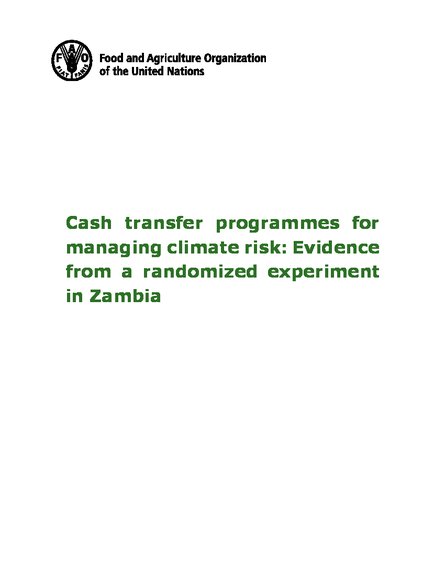
Cash transfer programmes are increasingly being used to combat poverty and hunger as well as to shape the human capital of future generations. Even though most of these programmes are not explicitly designed to help households manage climate risk, there are good reasons to expect that cash transfers can help build household resilience against climatic risk.
This study aims to provide an empirical analysis of the effect of weather risk on the welfare of rural households using impact evaluation data from the Zambia Child Grant Programme (CGP), together with a set of novel weather variation indicators. In particular, we estimate the impact of weather shocks on welfare and food security indicators, including total expenditure, food expenditure, non-food expenditure, calorie intake and dietary diversity, and investigate the role of cash transfers in managing climate risk. We find strong evidence that cash transfer programmes have a role in mitigating the effects of weather shocks. Indeed, our results highlight the importance of social cash transfers for households in the bottom quantile of consumption and food security distributions, in terms of moderating the negative effects of weather shock. Hence, integrating climate risk and social protection tools as part of comprehensive poverty reduction and social protection strategy should be of primary interest for policy-makers and governments when setting their policy agendas.
